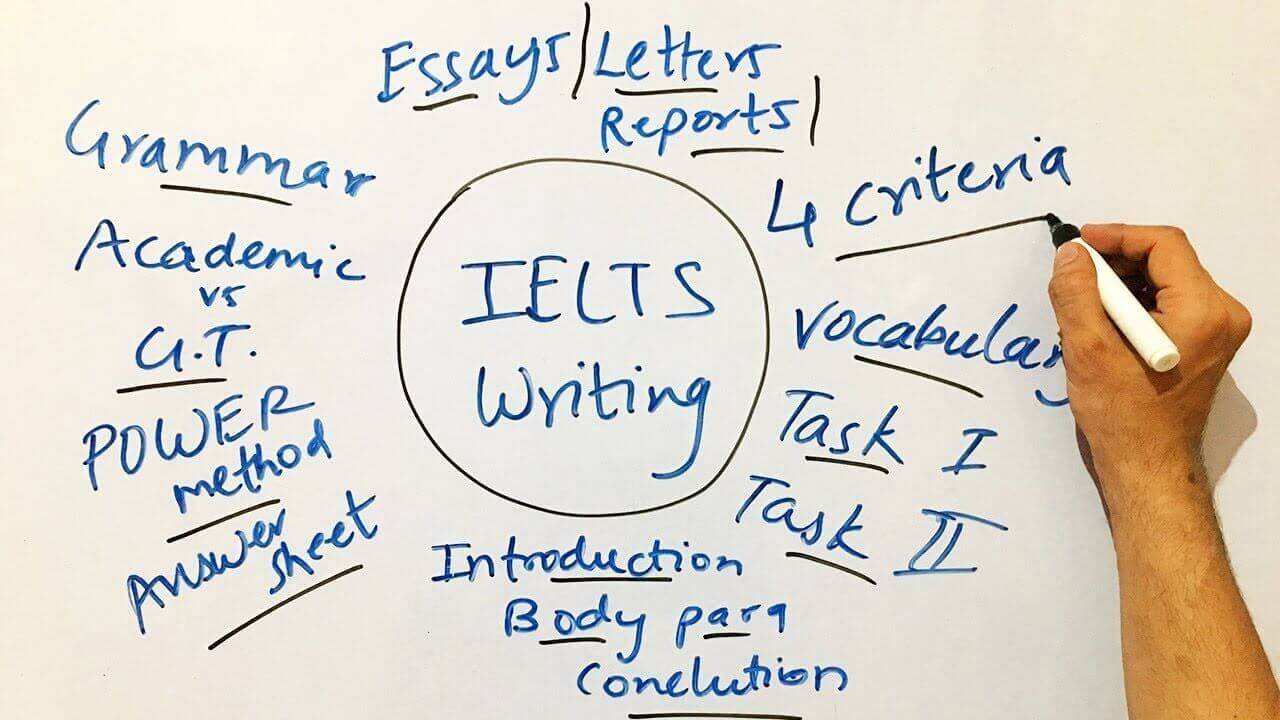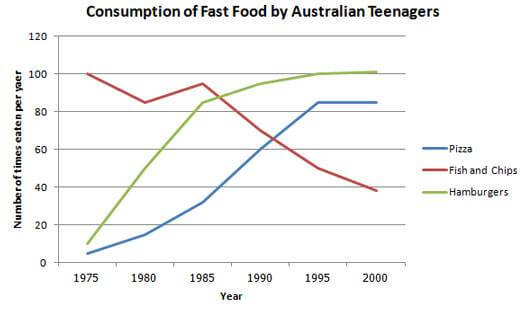Intro to the IELTS Writing Paper
Intro to the IELTS Writing Paper Like the rest of the exam, the IELTS academic writing paper takes some the skills and competencies required for...
Flexible group courses for everyday communication and fluency.
Academic EnglishPrepare for university study with advanced academic language skills.
Business EnglishEnglish for professional communication in corporate and workplace settings.
Private LessonsOne-to-one lessons tailored to your goals, schedule and interests.
Language ExcursionsLearn English while exploring Cape Town with your teacher as your guide.
Get the score you need with targeted strategies and expert support.
Cambridge ExamsPrepare for the FCE or CAE with structured, high-quality training.
TOEFL PreparationBuild confidence and test skills to succeed in the TOEFL exam.
Personalised one-to-one English lessons delivered online, on your schedule.
Corporate GroupsLive online training for teams, customised to your organisation’s needs.
English for Tech ProfessionalsSelf-paced English course designed for developers, engineers, and IT teams.
Qualify to teach English in South Africa or abroad with this practical course.
Blended Certificate in TEFLCombine online study with hands-on classroom experience in Cape Town.
Learn in a historic university campus right in the city centre.
Tours and ActivitiesExplore Cape Town and make friends through weekly excursions.
Social ProgrammeJoin our schedule of fun events, outings and conversations.
Getting AroundTips and tools for navigating the city like a local.
Social and DigitalStay connected online and through our vibrant student community.
A friendly, sociable student house just a short walk from school.
Adderley StudiosModern, secure apartments in the heart of Cape Town.
HomestayLive with a local family and experience South African culture.
Hotels & AparthotelsIndependent options for comfort, privacy and flexibility.
All tuition and accommodation fees in one clear table.
Booking InformationWhat to expect before, during and after you book.
Instalment PlansFlexible payment options for long-term bookings.
User LoginView your bookings, make payments, and manage your details.
Visa options and support for international students coming to South Africa.
Insurance & TravelWhat you need to know about travel, insurance and staying safe.
MyELC AppAccess your timetable, progress and more on the student app.
Arrival and OrientationHow we help you settle in on your first day in Cape Town.
How to request certificates, transcripts, or proof of enrolment.
Terms & ConditionsThe small print — bookings, cancellations, and more.
Contact UsGet in touch with the ELC team by email, phone or WhatsApp.
Privacy PolicyHow we protect your data and respect your privacy.
What makes ELC and UCT a great place to learn English.
About the University of Cape TownSouth Africa’s leading university and home to the ELC.
About the English Language CentreWho we are, what we offer, and how we teach.
Our TeamMeet the teachers, support staff and leadership team behind ELC.
Our international quality standards and endorsements.
Media & PressNews coverage, interviews and media mentions of ELC.
TestimonialsWhat our students, partners and teachers say about us.
BlogUpdates, stories and insights from the ELC community.
Flexible group courses for everyday communication and fluency.
Prepare for university study with advanced academic language skills.
English for professional communication in corporate and workplace settings.
One-to-one lessons tailored to your goals, schedule and interests.
Learn English while exploring Cape Town with your teacher as your guide.
Get the score you need with targeted strategies and expert support.
Prepare for the FCE or CAE with structured, high-quality training.
Build confidence and test skills to succeed in the TOEFL exam.
Personalised one-to-one English lessons delivered online, on your schedule.
Live online training for teams, customised to your organisation’s needs.
English for Tech Professionals
Self-paced English course designed for developers, engineers, and IT teams.
Qualify to teach English in South Africa or abroad with this practical course.
Combine online study with hands-on classroom experience in Cape Town.
Learn in a historic university campus right in the city centre.
Explore Cape Town and make friends through weekly excursions.
Join our schedule of fun events, outings and conversations.
Tips and tools for navigating the city like a local.
Stay connected online and through our vibrant student community.
A friendly, sociable student house just a short walk from school.
Modern, secure apartments in the heart of Cape Town.
Live with a local family and experience South African culture.
Independent options for comfort, privacy and flexibility.
Use our Course Wizard to match your goals and level to the best option
Course WizardAll tuition and accommodation fees in one clear table.
What to expect before, during and after you book.
Flexible payment options for long-term bookings.
View your bookings, make payments, and manage your details.
Visa options and support for international students coming to South Africa.
What you need to know about travel, insurance and staying safe.
Access your timetable, progress and more on the student app.
How we help you settle in on your first day in Cape Town.
How to request certificates, transcripts, or proof of enrolment.
The small print — bookings, cancellations, and more.
Get in touch with the ELC team by email, phone or WhatsApp.
How we protect your data and respect your privacy.
What makes ELC and UCT a great place to learn English.
About the University of Cape Town
South Africa’s leading university and home to the ELC.
About the English Language Centre
Who we are, what we offer, and how we teach.
Meet the teachers, support staff and leadership team behind ELC.
Our international quality standards and endorsements.
News coverage, interviews and media mentions of ELC.
What our students, partners and teachers say about us.
Updates, stories and insights from the ELC community.
2 min read
Simon Harrison
Updated on July 6, 2025

In our last post we looked at how to introduce, plan and structure your IELTS academic writing task 1 essay. Based on the same graph as the one we discussed on Monday, here we drill down into the detail – what vocabulary and grammar do you need for this task?
1. Cohesive Devices
Cohesive devices, also known as linking words, are essential to give structure to your essay. The most useful linking words for this kind of task are:
|
Summary |
Overall, in general, in summary |
|
Sequencing |
First of all, secondly, finally, lastly |
|
Contrast |
In contrast, on the other hand, however |
|
Sameness |
Similarly, furthermore, in addition |
In the example above, we would use them like this:
Body paragraph 1: First of all [consumption of fish and chips decreased]
Body paragraph 2: In contrast [consumption of pizzas increased] – similarly [consumption of hamburgers increased]
Conclusion: Overall [consumption of fast food was higher in 2000 than in 1975]
2. Verbs + Adverbs, Adjectives + Nouns
To describe the change over time that we see in the graph, we use combinations of verbs + adverbs or adjectives + nouns.
|
|
To show increase |
To show decrease |
|
Verbs |
Increased, rose, went up, grew |
Decreased, fell, declined, went down, dropped |
|
Nouns |
An increase, a rise, a growth |
A decrease, a fall, a decline, a drop |
|
|
To show big change |
To show small change |
|
Adjectives |
Dramatic, significant, rapid |
Gradual, steady, slight |
|
Adverbs |
Dramatically, significantly, rapidly |
Gradually, steadily, slightly |
Remember – always use past simple for verbs, and always include an article (a/an) for nouns.
3. Sentence Structures
To describe the changes over time which appear in the graph, there are two standard sentence structures you can use:
Verb Structure: [noun phrase] + [verb] + [adverb]
Noun structure: [there was a/an] + [adjective] + [noun] + [in] + [noun phrase]
The noun phrase is the data that is represented in the graph, such as ‘the number of students in the class’, ‘the rate of employment’, or, in this example, ‘the number of pizza meals eaten by teenagers in Australia’.
4. Include the Numbers
It is essential that you include some actual numbers in you essay – this is what you are supposed to be describing after all. When describing a trend, combine the sentence structures above with:
Then include the dates, using either ‘from…to…’ or ‘between…and…’.
5. Put it all Together
Now, combine all the elements we have discussed to construct your essay.
The graph illustrates how much fast food was consumed by Australian teenagers over a 25 year period from 1975 to 2000. Data for three types of fast food is included: fish and chips, pizza and hamburgers.
First of all, there was a significant decrease in the number of fish and chip meals consumed per year by teenagers in Australia. It fell slightly by 5 meals per year between 1975 and 1985, and then declined dramatically from 95 meals per year to 39 meals per year from 1985 to 2000.
In contrast, the consumption of hamburgers by Australian teenagers increased rapidly by 90 meals per year, from 10 meals to 100 meals between 1975 and 2000. Similarly, there was a dramatic rise in levels of pizza consumption, from less than ten meals per year, to approximately 85 meals by the end of the period.
Overall, teenagers in Australia consumed significantly more fast food in 2000 than in 1975.
[157 words]

Intro to the IELTS Writing Paper Like the rest of the exam, the IELTS academic writing paper takes some the skills and competencies required for...

Strategies for IELTS Academic Writing Task 1 (part 1/2) Students on our IELTS preparation course are often overwhelmed when approaching the IELTS...

How to Write a Great Cover Letter Applying for a job can be stressful and often people spend a lot of time working on their CV and then just write...